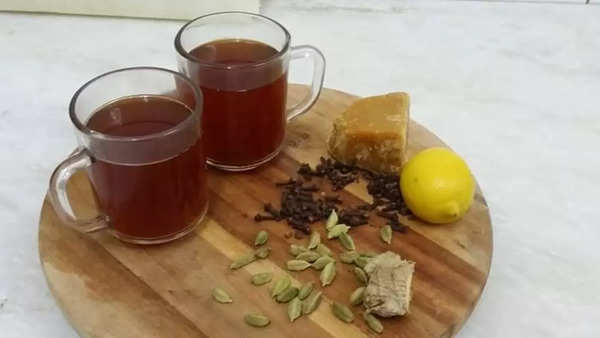Man of Peace
Derived from the Arabic word ‘Sulaiman’, meaning ‘man of peace’, Sulaimani tea earned its name from the deep bonds between the locals of the Malabar region and the Arabs. This friendship fostered a tradition of sharing, hospitality, and of course, tea. Thus, Sulaimani tea, also known as Sulaimani Chai, became a symbol of unity and camaraderie.

The recipe for Sulaimani tea is as diverse as its origins. Typically, black tea leaves are brewed to a golden hue, infused with an array of spices such as cinnamon, cardamom, cloves, and ginger. These spices not only impart a rich aroma but also add layers of complexity to the tea’s flavor profile. To balance the spices, a dash of lemon is added, enhancing the tea’s tanginess and refreshing qualities.
The history of Sulaimani tea traces back to the traditions of Arab culture. It is said that Prophet Mohammed indulged in a beverage called ‘ghava’, consisting of dates, black pepper, and other spices, which laid the foundation for what we now know as Sulaimani tea. Over time, this tea evolved, incorporating black tea leaves and the distinctive spice blend, creating a beverage that transcends borders and cultures.
The health benefits
Beyond its cultural significance, Sulaimani tea offers a plethora of health benefits. Black tea, the base ingredient of Sulaimani, is renowned for its antioxidant properties, which promote heart health, reduce blood pressure, and lower the risk of strokes. Additionally, black tea is hailed for its anti-aging properties, aiding in skin rejuvenation and reducing signs of premature aging. Even beyond consumption, black tea can be used as a natural remedy for puffiness and dark circles when applied topically under the eyes.

How to make Sulaimani?
Crafting the perfect cup of Sulaimani tea is an art form in itself. Begin by selecting high-quality black tea leaves, ensuring a robust flavor profile. In a saucepan, simmer water and infuse it with a medley of spices, allowing their aromatic essence to permeate the liquid. Add the black tea leaves and steep until the desired strength is achieved. Finally, squeeze a fresh lemon wedge into the tea, balancing the flavors and adding a citrusy twist.
To enhance the taste of Sulaimani tea further, consider experimenting with different spice combinations or adjusting the brewing time to suit your preferences. For those with a sweet tooth, a touch of honey or sugar can complement the spices, creating a harmonious blend of flavors.
Yoga for Health & Wellness: Sadhguru’s solution to belly fat & beyond
Sulaimani tea is more than just a beverage; it’s a cultural heritage, a symbol of unity, and a source of wellness. By embracing its rich history and exploring the nuances of its flavor, one can truly appreciate the art of brewing the perfect cup of Sulaimani tea. So, next time you crave a comforting and flavorful drink, immerse yourself in the tradition of Sulaimani tea and savor every sip of its warmth and spice.

